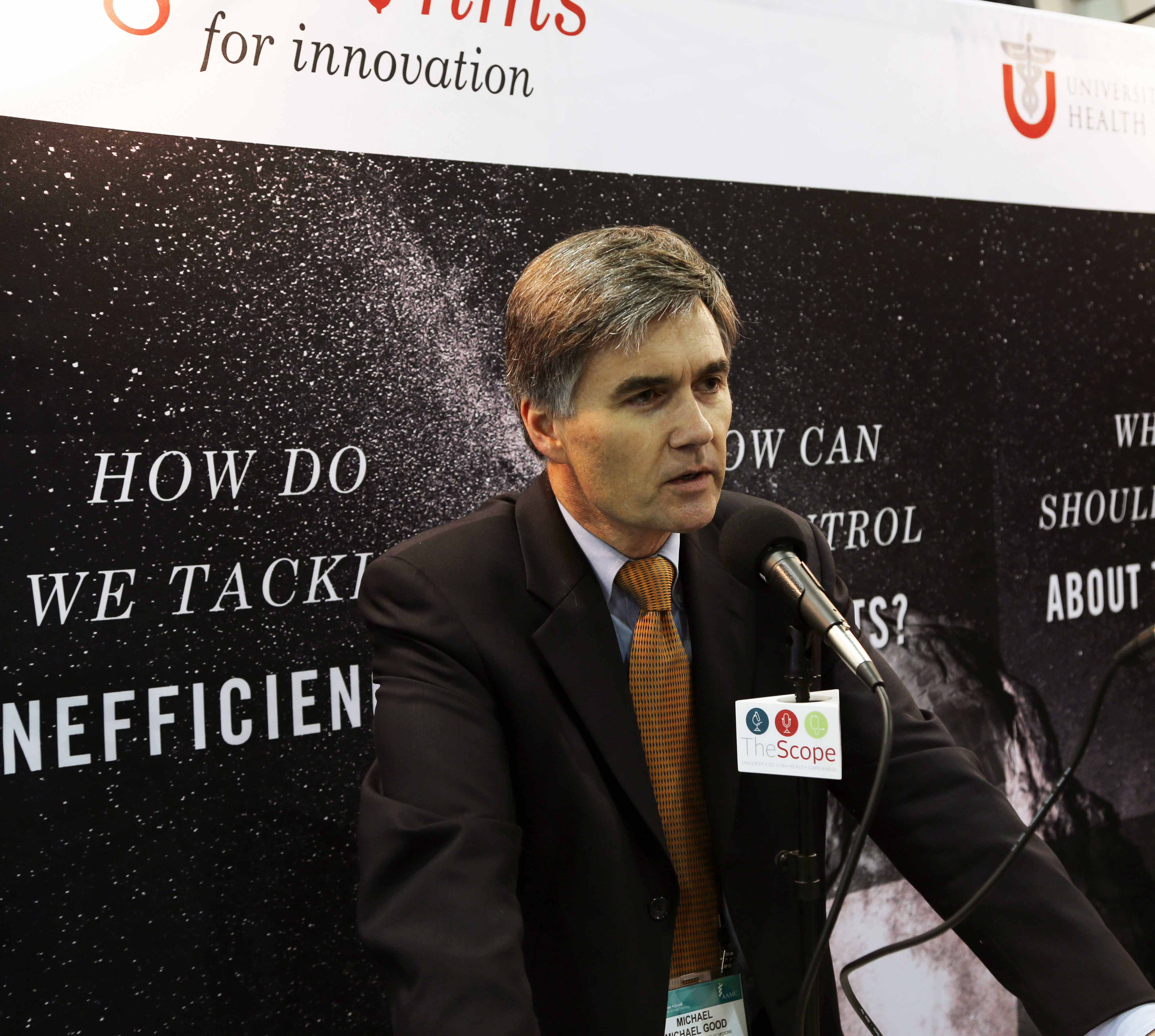Magic Medical Moments: Being Patient-centric in a Changing Health Care Environment

Michael Good, M.D., dean of the College of Medicine at the University of Florida, teaches students and providers to stay focused on patients. Change will work itself out.
Transcript
Announcer: Asking questions. Seeking perspectives. Searching for answers. Algorithms for Innovation. Live from Philadelphia at the AAMC 2013.
Good: I'm Michael Good, Dean of the University of Florida College of Medicine.
Host: Dr. Good, we were talking about change in academic medicine. We're kind of at the precipice, we're at the edge. We don't know where we're going. But you had an interesting thought about one thing that everyone should keep in mind. Would you share that please?
Good: We're at a very dynamic time, both in health care and in higher education and at times, it's hard to understand where we're headed. But when I talk with our medical students, I remind them, stay focused on the patient that is sitting in front of you right now. Take absolutely the best care of that patient, and the rest of the world will work itself out.
And really the same is true for our other missions in research and education. If we keep that patient focus in our research, how are we solving problems or investigating problems that our patients suffer from, regardless of NIH funding or regulatory burden or all of the other issues that confront modern bio-medical research. If we stay focused on patients' problems and solving them, I'm confident our greater society and organization will sort out how to make sure that moves forward.
Host: Do you feel that maybe a lot of academic centers have lost track of being patient-centric? Is that an issue?
Good: I don't know if it's an issue or not. I do know we can always do it better. There are certainly times in our past where perhaps we focused on the faculty member or we focused on other aspects and lost sight of just how important it is to lock eyes on the patient and really give them our undivided energies.
A contemporary example is electronic medical records. We really have to think through how we interact with patients while we're also trying to maintain an electronic medical record. But through structured exercises and our training environments, not only for our medical students but our residents and faculty as well, we can learn how to have an effective, patient-focused session in an examination room, and yet still get the medical record activities done.
Host: So in the real world, how do you make that happen? How do you get everyone on board in the organization that this is our mission, we're patient-centric?
Good: I think those who pursue a career in medicine, there is an internal desire and want to do that. We get caught up in our environments. And it's actually when we bring the whole team together and say, how can we redo this process or this activity so we not only have it inside of us that we're patient-centric, but we show that in the ways we interact with the patient, the things we say, in the systems of care that we bring them through.
I've often said that when we get the patient and physician in the exam room, the magic of medicine happens. But the gauntlet of activities we put both the patient and the physician through to get to that magic moment create great opportunities for us who spend our lives in education and in the redesign of healthcare systems to make it easier to get to those magic medical moments.
Announcer: Impossible problems in academic medicine. Hear how others are solving their problems at AlgorithmsforInnovation.org.
